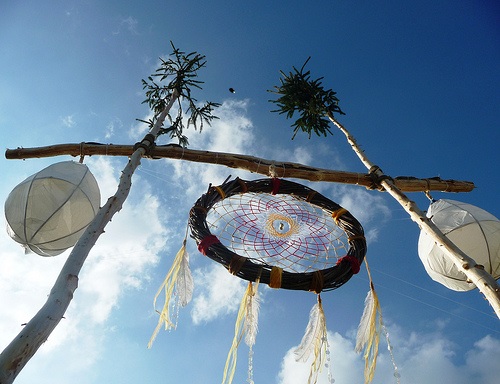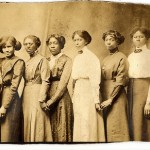I’m not sure if she was solving multiplication problems with the Checkerboard or working in Read Naturally when I called her over. I noticed she took a deep breath and had that faraway look in her eyes, but she shook herself, stood up, and made it over to my u-shaped table. Then, I handed it to her. She knew exactly where to look and how to interpret the information. When I saw a shine in her hazel brown eyes, I knew she understood. She scored Proficient on our district level assessment. In fact, almost Highly Proficient. She looked at me and smiled. It was in that moment that the little girl who started the year saying she was afraid of math (and proved it with a score of Minimally Proficient) realized that being afraid and being unable were two different things. With a 282 point growth, she was no longer afraid of math. She was more than Proficient. She was a Dream Catcher. In that moment, she was my hero.
Mia did not have a straight line to success. Her journey included several highs and lows along the way. In 1st grade, she squirreled around with her peers, tasting knowledge and sampling lessons. When something was a challenge, she would pull away. As a 2nd grader, I watched her hide her aversion to math with pretty smiles, stomach aches, and tons of “group work”. In 3rd grade, we dealt with it head-on. No excuses. No hiding. We did it scared and realized that numbers did not bite. I presented the lessons and she practiced. When it was hard, she tried to run and I brought her back with a reminder of her brilliance. When she forgot I taught her again and held her accountable to write out her notes for future reference. Initially, I let her work with peers and the group’s success was her success. Then I began to call her aside and sat near her as she began to trust her own mind. She looked to me to validate her answers and guide her through corrections. With time, she began to check her own work with the class materials. She increased with accuracy and eventually she was able to guide others. By the end of 3rd grade, she owned her experience. She was an active partner in her education. She realized that she was a mathematician and could do “hard” math.
Mia’s journey is not uncommon in my class. It is not even the most dramatic. In fact, by the end of the 3-year cycle, this type of story is typical in a Montessori classroom. What is not common is that this Montessori class is held in a free, publicly funded school in the heart of Central Phoenix (Arizona). During a time when we are all wondering what can be done to bring about sustainable and impactful change, I offer up the consideration of Montessori education at the public level. Although most that are aware of the Montessori philosophy view it as an exclusive educational approach reserved for the well-off, this is not the case. Dr. Montessori, a scientist, began her approach in response to observations that she made of children with mental and physical disadvantages. She then expanded her research to include children living in poverty. Her philosophical approach, lessons, and materials were based on these observations, and it was the phenomenal outcomes that gained the attention of the world, including the elite. Yet, the truth about Montessori is that it is an appropriate choice for public education because it is based on the natural development of the child from birth to young adulthood. This includes the child sitting in the public classroom. Since we must allocate public funding for education, let’s invest our tax dollars in purposeful education and teacher training that unleashes the human potential.
For additional information on how to become a Montessori teacher or to learn more about the impact that Montessori is having in public education, check out the following websites:
Association Montessori International: https://amiusa.org/
National Center for Montessori in the Public Sector (NCMPS) http://www.public-montessori.org/
MontessoriPublic (newspaper): http://www.montessoripublic.org/









Comments 10
Yolanda–what a beautiful piece. We are grappling right now in my high school with Competency Based Learning…I wonder if that’s a fancy way of talking about what Maria Montessori was thinking all along. Do you an your staff use this lingo? Thank you for sharing this.
Mia’s story is inspiring, but I have to wonder about one thing. Do you see her
pride in her score on the test as compromising any intrinsic reward that comes from your work with her?
Hi! Can you please clarify/rephrase your question,
Hello and thank you! That is not a term that we used, but when I looked it up, the definition indicates that there are similarities between the two. I think that one key difference is that she was not looking to see if they would learn or master anything. Her approach was a response to the way the child naturally learned as he/she developed…and developed as he/she learned. What she observed was that when we followed the natural development and progression of the child and prepared the environment to appropriately respond to what the child needed, the child had an internal desire to master (and did so).
What a beautiful story. These successes are the reason I teach. Day in a day out I see students struggle. I often see them refuse to try simply because of fear. When a student works hard and sees progress it is a wonderful thing. At such a young age for her to find success in her hard work is a lesson I wish all students could learn. It is these stories that keep me going. It is these wonderful experiences that show me there is a reason for all the work we put into these kid’s lives.
Thank you for sharing your thoughts. I do appreciate it. I will say that one of the blessings for me is that I was able to see her progress over a three year period due to the structure of the Montessori approach. So, I will say to you, even if you do NOT see the progress and growth that you want to see in your student, know that the seeds you sow today will bring the desired fruit in due season.
Yolanda, you are a powerful and compelling voice for all public schools, especially Montessori schools. That is a powerful story.
Thank you!
That’s an amazing story of Mia’s progression throughout the years. I loved how you used the phrase, “active partner in education.” I think it’s so powerful when children learn that they master their amount of knowledge; it’s all up to them! Thanks for sharing.
Thank you and much appreciation.